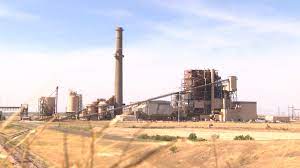California Resources Corporation today announced a storage-only Carbon Dioxide Management Agreement (CDMA) between Carbon TerraVault Holdings (CTV), a subsidiary of CRC that provides services including the capture, transport and storage of carbon dioxide (CO2), and Yosemite Clean Energy (Yosemite).
CRC also announced a second storage-only CDMA between CTV and InEnTec Inc. (InEnTec), according to a news release.
“2023 began on a good note for Carbon TerraVault as we continued to expand our carbon management storage capacity by submitting another Class VI permit to the EPA and entering into two additional Carbon Dioxide Management Agreements with reputable partners who are committed to energy transition in California,” said Mac McFarland, Chairman of the CTV Board. “We expect to receive a draft Class VI permit for CTV I by the end of the year and plan to further expand and diversify CTV’s portfolio of customers across the energy spectrum in the state of California.”
Francisco Leon, CRC’s President and Chief Executive Officer, added, “We are evaluating the strategic positioning of our carbon management business which could include a potential separation from our legacy oil and gas business. We are excited about CTV’s progress to date and believe a future separation could unlock additional value for our shareholders while continuing to help California achieve its climate goals.”
Primary Highlights
- Submitted a Class VI permit to the EPA for 34 million metric tons (MMT) of CO2 storage for CTV IV, bringing CTV’s total potential permitted storage to 174 MMT
- Signed storage-only CDMAs with Yosemite Clean Energy, LLC and InEnTec Inc. for 40,000 and 100,000 metric tons per annum (MTPA) of CO2 injection, respectively, bringing the total CTV injection rate to 610,000 MTPA with 200,000 MTPA targeted to Elk Hills reservoir and 410 MTPA targeted in the Sacramento basin area
Yosemite Clean Energy, LLC CDMA
In April 2023, CTV entered into a CDMA with Yosemite, a bioenergy development company that specializes in transforming farm and forest wood waste into carbon-negative hydrogen and renewable fuel, to sequester at least 40,000 MTPA of CO2 at CTV carbon storage vaults from a new hydrogen plant to be constructed in Oroville, Northern California. Called the Yosemite Hydrogen Facility, the plant is expected to produce 24,000 kilogram (KG) per day of hydrogen. Over the next 10 years, Yosemite plans to construct two additional hydrogen facilities in California with similar technical and production characteristics.
The initial Yosemite Hydrogen Facility will utilize dual bed gasification technology to sustainably convert woody biomass waste from local forest and agricultural producers into syngas while the generated CO2 will be captured and then stored permanently underground by CTV. Syngas is a combination of hydrogen, methane, CO2, carbon monoxide, and other trace gases that is used to produce other fuels. California generates an estimated 50 million tons of forest and farm woody biomass waste annually, which when left to burn, decay, and decompose, emits immense amounts of greenhouse gases and black carbon, or soot, which is part of fine particulate air pollution. Yosemite’s plans to sustainably convert biomass into syngas, from which carbon negative hydrogen is produced, is in line with California’s leading emission targets as it transitions to a carbon neutral economy.
“We are excited to work with such an experienced renewable fuels partner that is dedicated to powering California’s future,” said Francisco Leon, CRC’s President and Chief Executive Officer. “This new agreement underscores the need for CCS services to help reduce emissions in the state’s rapidly growing new energy economy. It also expands CRC’s carbon management business in Northern California and meaningfully demonstrates our dedication to helping decarbonize California across the full spectrum of the energy value chain.”
“California continues to lead the country in the development of innovative, sustainable and economically feasible solutions that help reduce its carbon emissions and transition to a carbon neutral economy,” added Thomas Hobby, Yosemite’s Chief Executive Officer. “Our green hydrogen facilities will not only help to sustainably convert existing biomass into commercial scale carbon negative hydrogen for the California fuel markets but will also support local farmers and forest landowners to further enhance their operations and better position them for the future. CTV’s unique value proposition, leading CO2 storage permitting process, storage asset position, and expertise provides us with confidence that we have found a solid partner in our quest for a sustainable, cleaner, more resilient environment for all Californians.”
Highlights of the Yosemite CDMA include:
- The Yosemite Hydrogen Project is expected to produce 24,000 KG per day of hydrogen. This translates to an initial 80,000 MTPA of associated CO2,40,000 MTPA of which will be used for Yosemite’s internal needs and the other half will be permanently sequestered at CTV locations
- Yosemite has entered into a letter of intent for a master offtake agreement with Gunvor USA in an amount up to the facility’s total hydrogen production
- The project is expected to be commercial by the beginning of 2026, aligning with CTV’s goal of 5 million MTPA by the end of 2027
- Yosemite plans to deliver produced CO2 to a CTV location via a fleet of low emissions trucks
- The project’s location and CO2 transportation method provides a unique opportunity for CTV to deliver CO2 to various sequestration locations across California
- CTV will provide a CO2 truck offloading facility and permanent CO2 storage site in exchange for an injection fee on a per MT basis that fits within the previously disclosed economic type-curve for projects that require a storage-only solution
- CO2 capture capital will be effectively eliminated as CO2 capture equipment, the most capital-intensive portion of CCS projects, is incorporated into the base design of the new Yosemite hydrogen facility
- CTV will have the right to take a stake in the total outstanding equity of the project company that holds the hydrogen project
- CTV will have a right of first look to provide storage services for subsequent Yosemite hydrogen projects in California
- The CDMA frames the contractual terms between parties by outlining the material economics and terms of the project and includes conditions precedent to close. The CDMA provides a path for the parties to reach final definitive documents and a final investment decision (FID).
InEnTec, Inc. CDMA
In April 2023, the CTV entered into a CDMA with InEnTec, an industry leader in gasification systems that economically and responsibly turns the world’s waste into valuable green products, fuels and energy.
The CDMA contemplates that InEnTec will build a new renewable dimethyl ether (rDME) production facility at CRC’s Net Zero Industrial Park in Kern County California, and CTV will sequester initially at the minimum 100,000 MTPA of CO2 from InEnTec’s facility in the CTV I carbon storage vault. The rDME facility is expected to produce 80 to 100 tons per day of rDME from biomass and other waste materials to help support the decarbonization of California’s economy and its transportation sector.
“This promising agreement between CTV and InEnTec provides an innovative approach to production of renewable fuel at the heart of the Kern County energy hub,” said Francisco Leon, CRC’s President and Chief Executive Officer. “Doubling our CO2 supply commitments at CTV I in a matter of four months at our groundbreaking Elk Hills Net Zero Industrial Park further underscores the rising need for our carbon management solutions in California.”
“InEnTec’s proprietary technology will reduce CO2 emissions from the production and use of transportation fuels and help California achieve its critically important climate goals,” added Jeffrey E. Surma, InEnTec’s President and Chief Executive Officer. “This facility will benefit from many synergies with CTV and solidify InEnTec’s company growth plans as we work to help decarbonize both the transportation and industrial sectors of the U.S. economy.”
Highlights of the InEnTec CDMA include:
- The rDME facility will use InEnTec’s proprietary gasification technology to convert waste materials into high quality synthesis gas, and then convert the syngas into rDME using technology expected to be supplied by InEnTec’s partner Verde Clean Fuels (NASDAQ: VGAS). The facility is expected to produce 80 to 100 TPD of rDME for use as transportation fuel and subsequently at the minimum 100,000 MTPA of associated CO2 that will be permanently sequestered at CTV I
- InEnTec entered into a master offtake agreement with Superior Plus Energy Services Inc. (Superior) to supply Superior with rDME. Superior is a U.S. operating subsidiary of Superior Plus Corp. (TSX: SPB)
- Project FID is targeted in late 2024, with operations expected to begin in the first half of 2026
- The CDMA also provides InEnTec with a lease for 50 acres at the Elk Hills Net Zero Industrial Park to construct its facility
- CTV will provide infield transportation and a permanent CO2 sequestration site at CTV I in exchange for an injection fee on a per ton basis that fits within the previously disclosed economic type-curve for projects that require a storage-only solution
- The project’s location at the Elk Hills Net Zero Industrial Park will eliminate the need for long haul CO2 transportation and certain midstream capital requirements
- CTV and InEnTec are discussing CRC’s potential financial participation in the rDME facility, including potentially a significant equity stake
- The CDMA frames the contractual terms between parties by outlining the material economics and terms of the project and includes conditions precedent to close. The CDMA provides a path for the parties to reach final definitive documents and FID








